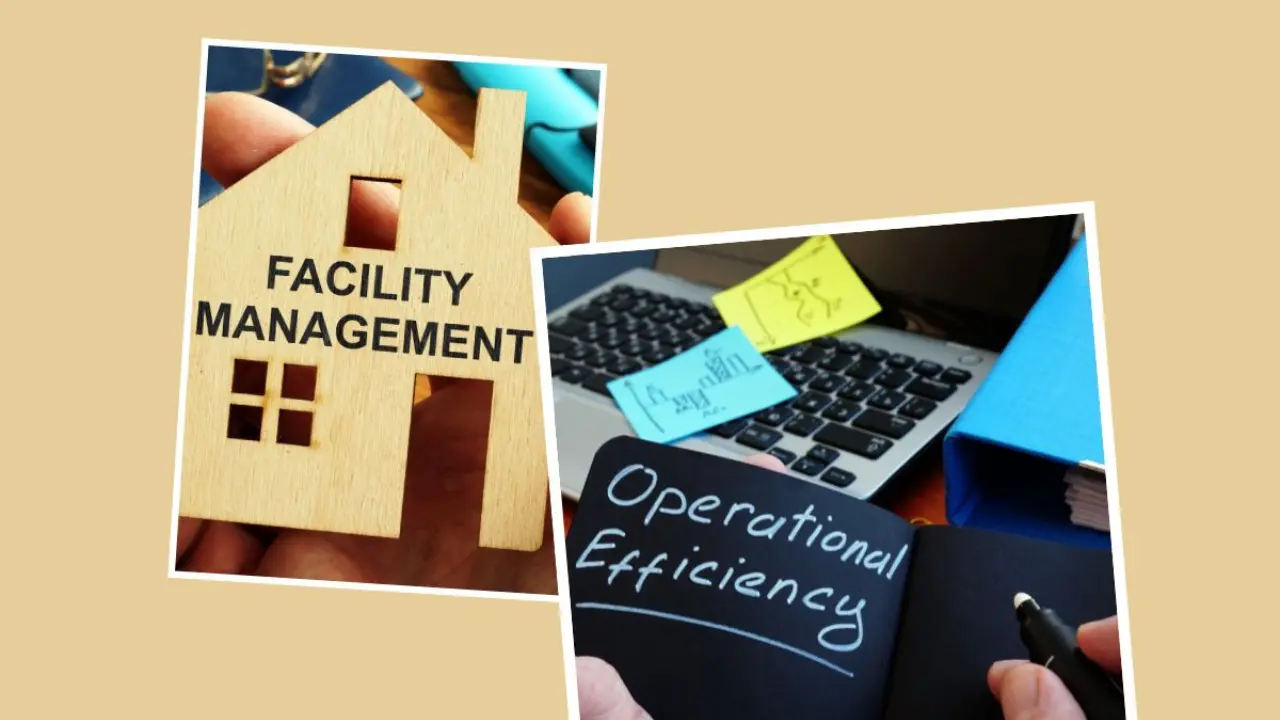
Maximizing Operational Efficiency: How Facilities Management Can Drive Business Success
Why do organizations focus on operational efficiency? What exactly do they gain from it? If you have these questions in mind, the answer is straightforward. When operations run smoothly, business success naturally follows. But how exactly do organizations achieve this efficiency?
It's all about using resources smartly. When a company utilizes its resources better, it spends less and gets more in return. Smart organizations know that streamlining a process eliminates waste and keeps customers satisfied.
This offers a solid foundation for innovation and ensures sustainable growth. To get there, companies have to take an honest look at their operations, which means they should identify what isn't working and make practical improvements. It's really that straightforward.
Key Takeaways
- Understand the importance of maximizing operational efficiency for ensuring success, including reducing costs and enhancing quality.
- Learn how facilities management supports operational efficiency by maintaining and managing supportive services to prevent downtime and ensure smooth operations.
- Explore strategies for maximizing operational efficiency, such as implementing effective maintenance plans, utilizing technology, and streamlining processes.
- Recognize the benefits of operational efficiency, including cost savings, increased productivity, and improved customer satisfaction.
- Discover the future of facilities management, focusing on the adoption of new technologies, collaboration with other departments, and emphasis on sustainability.
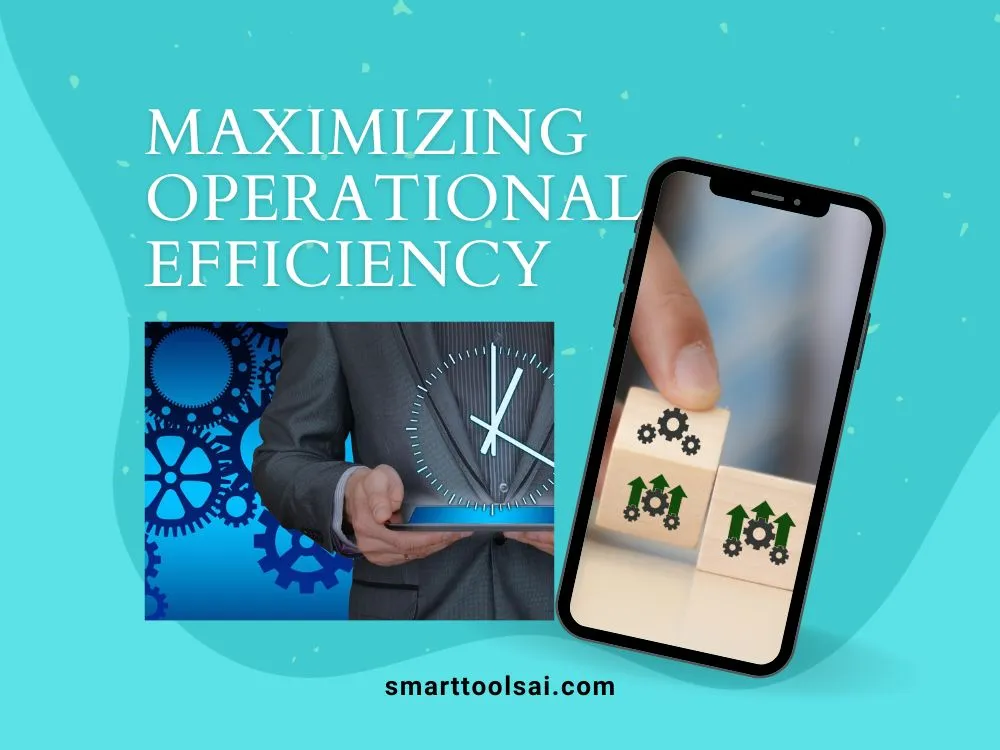
Importance of Operational Efficiency
Establishing an effective and efficient operation process empowers organizations to lower costs, boost productivity, and enhance customer satisfaction. It enables businesses to quickly adapt to evolving market demands and competitive forces.
Prioritizing operational efficiency allows organizations to easily identify areas where waste happens. This helps streamline processes, optimize resource allocation, and enhance manufacturing quality. It also helps improve the utilization of time, finances, and human resources, which then drives profitability and provides long-term sustainability.
What is Facilities Management?

Definition of Facilities Management (FM)
It's simply defined as the comprehensive management of the non-core business objectives of an organization. It's also known as the management of supportive services, which aid in proper building operation. FM covers both hard and soft FM services.
Hard FM services mainly focus on maintenance and repairs of various building systems such as HVAC, water supply, electrical distribution, fire safety, vertical transportation, and many other systems. Soft FM services involve managing security systems, housekeeping, pest control, landscaping, pantry, waste management, and several others.
Companies can focus on supporting their primary objectives by effectively managing the hard and soft FM services. The main goal of utilizing these FM services is to establish and maintain a work environment that is safe and functional for its occupants.
Role of FM in Operational Efficiency
FM plays a pivotal role in maximizing operational efficiency. It helps enhance the overall productivity and functionality of an organization. This helps minimize breakdowns and downtimes. This way, it reduces operational losses and increases efficiency.
Moreover, FM also plays a vital role in ensuring the health and safety compliance of an organization. It provides a comfortable workplace with minimal risks. This is necessary to reduce accidents and their consequences. By performing all of these vital tasks, FM supports an organization to run its business smoothly and enhance operational efficiency.
Strategies for Maximizing Operational Efficiency
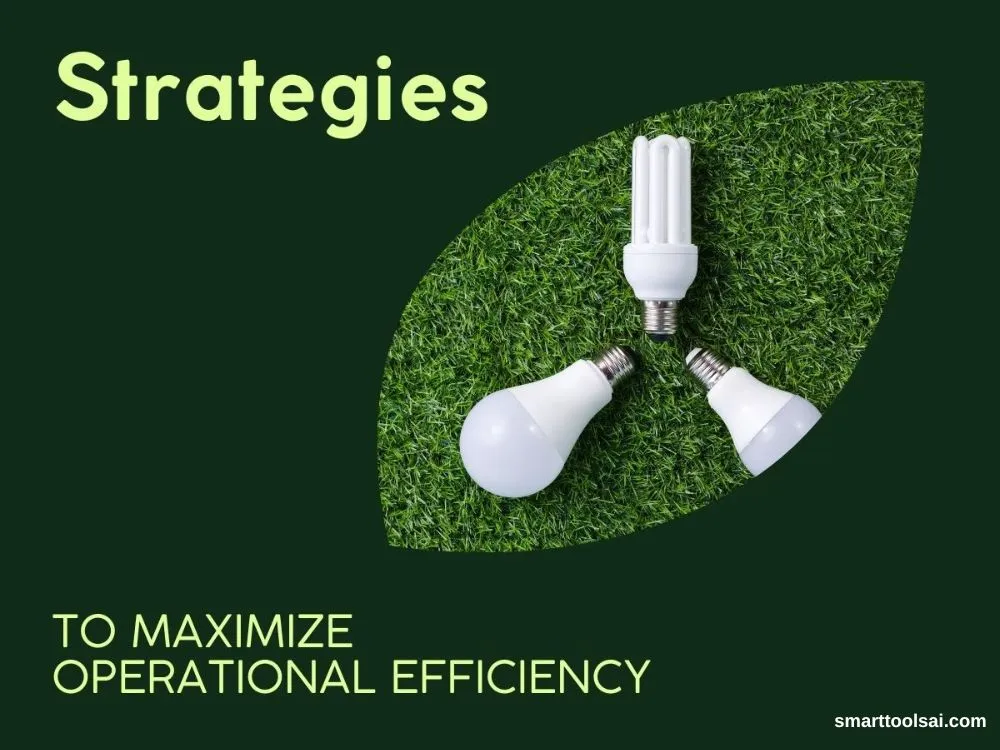
Implementing Effective Maintenance and Repair Plans
This is one of the most important strategies for maximizing operational efficiency. If an organization fails to have a well-planned maintenance schedule, it may lead to machinery breakdowns. These breakdowns can occur unexpectedly and cause costly production downtime, revenue losses, and supply chain logistics disruptions.
By implementing the necessary facility maintenance plan, companies can avoid this kind of issue and ensure that their machinery is operating efficiently. The maintenance plan involves different maintenance types such as predictive, preventive, corrective, and total productive maintenance. Plus, regular inspection and repair of machinery and systems help organizations reduce building-related issues.
Moreover, by staying ahead of maintenance issues, companies can prevent small problems before they become larger and more costly issues that impact productivity and profitability. In return, it helps increase output and drive overall operational efficiency.
Utilizing Technology to Improve Efficiency
Technology supports business processes that maximize operational efficiency. Different technologies like automation software, cloud computing, and artificial intelligence (AI) help improve operational efficiency by reducing manual task completion and lowering errors.
For instance, using automation eliminates repetitive tasks and saves valuable time for employees to concentrate on more valuable activities. Cloud computing delivers access to data and information anytime and anywhere, which improves collaboration and decision-making.
Also, artificial intelligence can analyze extensive amounts of data to recognize patterns and make recommendations. This will enable businesses to make data-driven decisions and enhance operational efficiency. With all of these essential reasons in mind, organizations must adopt and leverage technology as a key strategy to stay ahead.
Streamlining Processes for Increased Productivity
One of the most critical strategies for maximizing operational efficiency is streamlining the processes for increased productivity. This is particularly concerning about reducing unnecessary steps and minimizing waste to optimize work productivity. By identifying and evaluating each process involved in the operations, Companies can recognize bottlenecks that can slow down their operations.
This helps them easily eradicate the flaws in the operation process. By effectively doing this, the organization can save both time and money while increasing its overall efficiency levels. A streamlined process helps get work done more quickly, the overall workload can be reduced, and employees focus their energy on more important tasks by getting sufficient free time.
Ensuring Compliance with Regulations and Standards
The legal compliance pertaining to all regulatory standards is an important thing to improve operational efficiency. There are different regulations and standards such as ISO 9001, 14001, 50001, and OSHAS. These standards ensure that an organization is complying with its legal obligations and operating at the highest possible level of efficiency.
Also, complying with these regulations and standards helps companies maintain their standard level and streamline their processes. Plus, compliance is useful for organizations to avoid unnecessary legal complications and problems that can damage their business reputation. Understand more about compliance management from our comprehensive guide.
The Benefits of Operational Efficiency
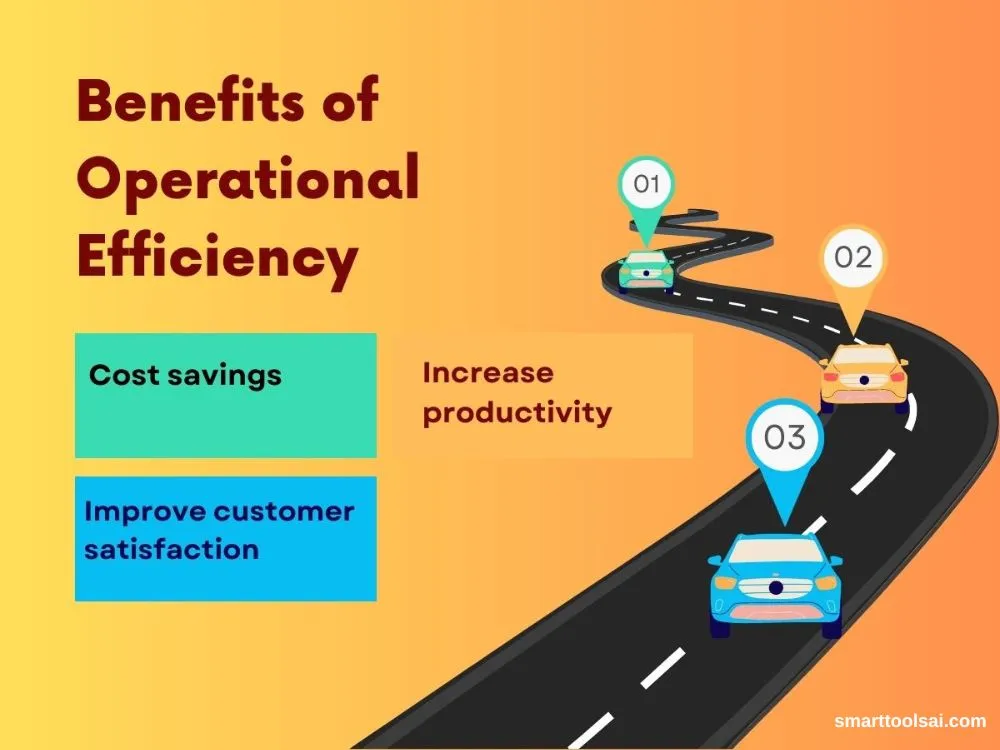
Cost Savings
A company gets multiple benefits through operational efficiency. The most important benefit is cost savings. This is necessary when it comes to improving productivity. Further, a cost-saving approach like utilizing minimal resources to get maximum outputs can benefit the organization in multiple ways.
Operational efficiency helps minimize operating expenses and establish a healthier bottom line. It enhances the profitability of an organization, which will lead to meeting customer needs and capitalizing on new opportunities. It's vital for organizations to deep dive into implementing all possible ways to establish operational efficiency to save costs.
Increase Productivity
Achieving operational efficiency helps organizations accomplish work most effectively. This involves streamlining the process, eliminating waste, and automating the tasks. These practices enable businesses to reduce the duration of tasks and result in increased output within a shorter duration.
Moreover, increasing productivity is a key element to business success because it helps meet customer demands and achieve the company's missions and goals quickly. Plus, there are many more competitive advantages that an organization gets through operational efficiency.
Improve Customer Satisfaction
Operational efficiency also helps directly improve customer satisfaction, where companies can simplify their operations and decrease inefficiencies. This will help companies offer the best services to their customers.
This approach produces results like increased satisfaction and loyalty, which helps for repeat business and positive word-of-mouth marketing. Additionally, operational efficiency allows organizations to respond more quickly to their customers' needs and requests. This further improves satisfaction and enhances customer retention.
The Future of Facilities Management
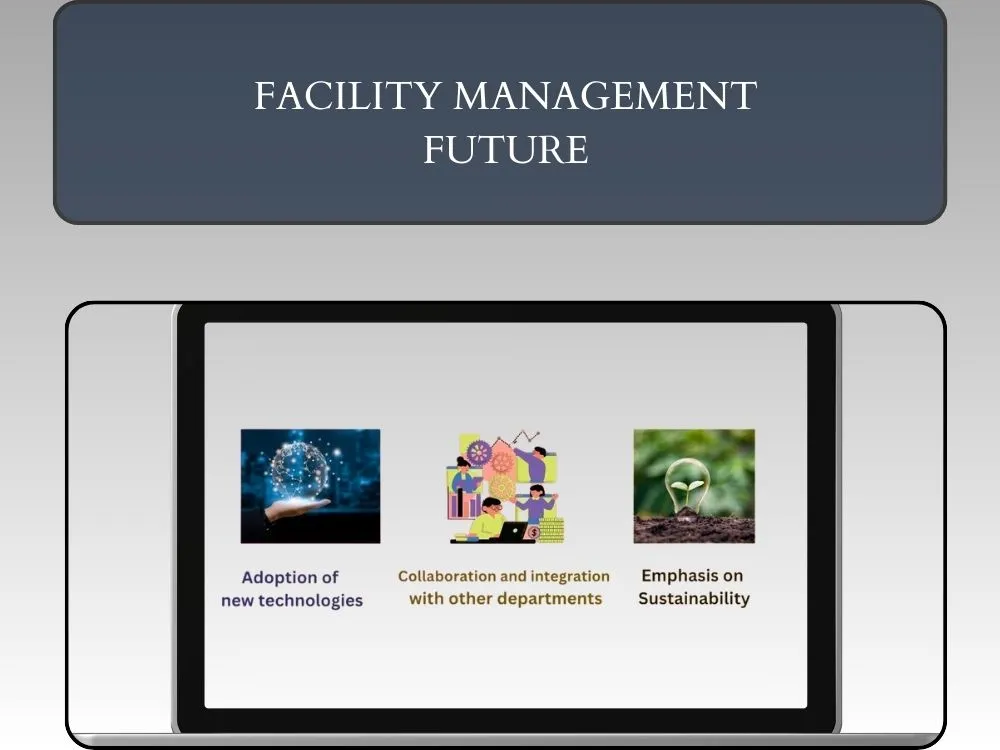
Adoption of New Technologies
The future of FM depends upon how the industry adapts to new technologies. As we already discussed, FM is all about managing the supportive services of an organization to run its primary objectives without any hassles.
There are many chances for innovations and technological advancements to effectively practice FM in an organization, and it continues to grow. Existing technologies such as building management systems (BMS), computerized maintenance management systems (CMMS), computer-aided facilities management (CAFM), and several others can simplify the process of practicing FM in an organization.
Moreover, new technologies continue to rise in the market that can even more simplify the process. Therefore, it should be really important for organizations to adapt new technologies to perform their tasks related to FM.
Collaboration and Integration with Other Departments
FM continues to grow, and the significance of collaboration and integration with other departments becomes important for shaping the future of this industry. Nowadays, the business environment is changing rapidly, and FM professionals cannot function with their responsibilities alone.
Therefore, the FM department should be integrated with other departments like IT, finance, procurement, safety, HR, food, beverage, and many others. This collaboration approach allows FM professionals to understand organizational objectives better and deliver efficient solutions that align with the firm's overall strategy.
Also, when integrating FM systems with other departments, facilities professionals have to face some challenges. These challenges are effectively eradicated by following certain strategies that help simplify processes, enhance efficiency, and decrease costs.
Emphasis on Sustainability
The future of FM is here, and it's all about sustainability. As conscious business leaders start to prioritize their social and environmental impact, FM professionals should cater to a growing demand for sustainable practices. By implementing sustainable solutions, these professionals can enhance operational efficiencies and minimize their carbon footprint.
Sustainability in FM can be achieved through various means such as using renewable energy sources, embracing waste minimization techniques, promoting green initiatives for employees, and investing in eco-friendly building materials and systems for improved energy efficiency.
By embracing sustainability in FM, organizations can cut costs, attract customers who care about environmental issues, and create a better, sustainable future for the coming generations.
Wrapping Up
Operational efficiency is a vital factor in driving business success. This article emphasized the importance of operational efficiency and how facilities management (FM) can play a pivotal role in achieving it. FM involves optimizing physical assets and resources within a business environment to ensure smooth operations.
The future of FM holds exciting opportunities with advancements in technology integration, automation, and predictive maintenance. These innovations will further enhance operations, resource allocation, and overall business success.
FAQs
Q1: What role does FM play in maximizing operational efficiency?
FM ensures the smooth functioning of assets and resources. It contributes to operational efficiency through maintenance, repairs, and resource optimization.
Q2: What are the benefits of achieving operational efficiency?
There are several benefits, including increased productivity, cost savings, improved customer satisfaction, enhanced profitability, and sustainability through energy conservation and waste reduction.
Explore Related Posts
https://smarttoolsai.com/post/workspace-optimization-mastering-space-management
https://smarttoolsai.com/post/the-strategic-advantage-how-outsourcing-can-benefit-your-business
.webp)